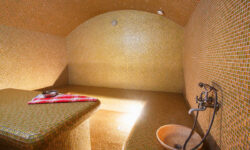Are Peanut Butter Crackers Healthy? ⏬
Peanut butter crackers are a popular snack choice, known for their convenience and delicious taste. However, when it comes to making healthy dietary decisions, it’s crucial to evaluate the nutritional aspects of these snacks. In this article, we will delve into the health considerations of peanut butter crackers, helping you make informed choices for your snacking habits.
Peanut Butter Cracker Nutrition
Peanut butter crackers, a popular snack choice, offer a combination of flavors and nutrients. Here’s a brief overview of their nutritional profile:
Serving Size: The nutritional content of peanut butter crackers can vary by brand and serving size. It’s essential to check the product’s packaging for precise information.
Calories: A typical serving of peanut butter crackers, which is about six to eight crackers, contains around 120 to 150 calories. The specific calorie count can differ between brands and recipes.
Protein: Peanut butter crackers provide a moderate amount of protein, usually about 2 to 4 grams per serving. Protein is essential for muscle maintenance and overall body function.
Fats: These crackers are known for their peanut butter filling, which contributes to their fat content. A serving typically contains approximately 6 to 9 grams of fat. Peanut butter crackers primarily contain unsaturated fats, which are considered heart-healthy.
Carbohydrates: Peanut butter crackers are a source of carbohydrates, with around 15 to 20 grams of carbs per serving. Carbohydrates are the body’s primary energy source.
Fiber: Some peanut butter crackers may contain a small amount of dietary fiber, roughly 1 to 2 grams per serving. Fiber supports digestive health and can help keep you feeling full.
Sugar: Depending on the brand and recipe, peanut butter crackers may contain added sugars. It’s important to check the nutrition label to determine the sugar content.
Sodium: These crackers can be relatively high in sodium, with a typical serving containing around 200 to 300 milligrams. Excessive sodium intake should be monitored, especially if you have dietary restrictions.
Vitamins and Minerals: Peanut butter crackers can provide essential nutrients like niacin (vitamin B3), which plays a role in metabolism, and minerals such as iron and magnesium in small amounts.
It’s important to note that the nutritional content may vary based on factors such as the brand, portion size, and specific ingredients used. When selecting peanut butter crackers, consider looking for options with whole-grain or whole-wheat crackers and peanut butter that doesn’t contain added sugars or unhealthy trans fats for a healthier snack choice.
Always check the product’s nutrition label for the most accurate and detailed information on the specific peanut butter crackers you choose.
Health Benefits of Peanut Butter Crackers
Peanut butter crackers offer a combination of flavors and some potential health benefits. Here’s a concise overview of the health benefits associated with these popular snacks:
Benefit Description Protein Source Peanut butter crackers are a source of protein, which is essential for muscle maintenance, immune system support, and overall growth. Heart-Healthy Fats They contain unsaturated fats from peanut butter, which can be beneficial for heart health when consumed in moderation. Energy Boost Carbohydrates in crackers provide a quick energy boost, making them a convenient snack for a quick pick-me-up. Satiety The combination of protein and healthy fats in peanut butter crackers can help you feel full and satisfied. Dietary Fiber (in some) Whole-grain or whole-wheat crackers may offer small amounts of dietary fiber, aiding in digestive health. Niacin (Vitamin B3) Peanut butter provides niacin, a B vitamin important for metabolism, nerve function, and skin health. Minerals (Iron, Magnesium) These crackers contain small amounts of essential minerals like iron and magnesium. Iron is crucial for oxygen transport in the body, while magnesium supports various biochemical reactions.
It’s important to choose peanut butter crackers made with wholesome ingredients and in moderation to maximize these benefits. Keep in mind that the specific nutritional content and health benefits may vary based on factors like the brand and product recipe. Always check the product’s nutrition label for precise information.
Are Peanut Butter Crackers Good for You?
Peanut butter crackers are a popular snack, but whether they are good for you depends on various factors. Here’s a concise overview of the pros and cons to help you make an informed choice:
Pros:
- Protein Source: Peanut butter crackers provide a moderate amount of protein, which is essential for muscle repair, immune function, and overall health.
- Healthy Fats: Peanut butter contains monounsaturated and polyunsaturated fats, which can be heart-healthy when consumed in moderation.
- Quick Energy: The combination of carbohydrates from crackers and healthy fats in peanut butter offers a quick energy boost, making them a convenient snack.
- Satiety: The protein and fats in peanut butter crackers can help you feel full and satisfied, reducing the likelihood of overeating.
- Convenience: They are portable and have a long shelf life, making them a convenient on-the-go snack option.
Cons:
- Calorie Content: Peanut butter crackers can be calorie-dense, so overconsumption may lead to weight gain if not portion-controlled.
- Added Ingredients: Some commercial peanut butter crackers may contain added sugars, salt, or unhealthy fats. Check the product’s label for unwanted additives.
- Portion Control: It’s easy to overindulge in peanut butter crackers, so practicing portion control is crucial.
- Low Fiber: Many peanut butter crackers lack dietary fiber, which is important for digestive health.
- Nut Allergies: If you have nut allergies, peanut butter crackers are not a safe choice.
Peanut Butter Cracker Calories
Here’s a table showing the approximate calorie content of common peanut butter cracker brands and serving sizes:
Brand Serving Size Calories Ritz Bitz 1 pack (28g) 140 Lance Toast Chee 1 pack (42g) 220 Austin Cheese 1 pack (37g) 200 Nabisco Nutter Butter 1 pack (31g) 140 Keebler Cheese & Peanut Butter 1 pack (39g) 200
Please note that the calorie content can vary between different product flavors and serving sizes. Always refer to the product’s nutrition label for the most accurate information.
Nutritional Value of Peanut Butter Crackers
Peanut butter crackers are a popular snack, and their nutritional value can vary depending on the brand and specific product. Here’s a general overview of the nutritional components you can find in peanut butter crackers:
1. Calories: Peanut butter crackers typically range from 140 to 220 calories per serving, with serving sizes usually in the range of 1 pack or around 28-42 grams. Calorie content can vary based on the brand and specific product.
2. Fats: Peanut butter crackers contain both total fats and saturated fats. The amount of fat can vary, but peanut butter crackers are known for being a source of fats due to the peanut butter filling.
3. Protein: These crackers often contain a modest amount of protein, which can range from 2 to 4 grams per serving.
4. Carbohydrates: Peanut butter crackers are primarily a source of carbohydrates. They usually contain around 15 to 25 grams of carbohydrates per serving.
5. Fiber: Some brands offer peanut butter crackers with added fiber, which can contribute to better digestive health.
6. Sugars: Peanut butter crackers can contain added sugars, so it’s important to check the nutrition label to understand the sugar content.
7. Sodium: Pay attention to the sodium content, which can range from 150 to 300 milligrams per serving. Excessive sodium intake can contribute to high blood pressure.
8. Vitamins and Minerals: Depending on the brand and product, you may find small amounts of vitamins and minerals such as iron, calcium, and potassium. The levels are generally not high.



